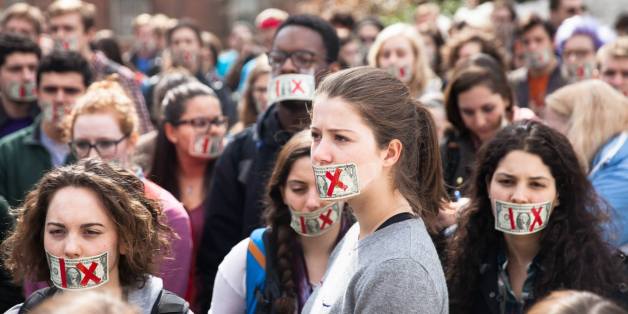WE BELIEVE YOU – New book details sexual assault on campuses
It happens on every college campus: at a fraternity party, after a late-night study session or after a first date. Campus sexual assault is a reality many have to live with, even here at USC, where a recent study revealed that 29.7 percent of female undergraduate students have experienced sexual harassment or assault in some form.
Earlier this month, the stars of the harrowing campus sexual assault documentary, The Hunting Ground, released We Believe You, an anthology about the same topic. Annie E. Clark and Andrea L. Pino rose to activist fame when they, along with three other students at the University of North Carolina at Chapel Hill, filed a federal Title IX complaint against the university.
We Believe You tells the stories of students who were sexually assaulted on college campuses — private, public, Ivy League, large and not-so-large. In 368 pages, 36 students of all ages, races and genders explain what they endured. The book is divided into six sections: “Before,” “How It Happened,” “Trauma and Betrayal,” “Healing and Everyday Activism”,” “Declaration of Independence” and “Rights and Resources”.
From the get-go, We Believe You established that it is not the usual story of sexual assault — if there ever was such a thing. The choice of the book’s title is particularly powerful. When it comes to sexual assault, the survivor is constantly doubted. Victims are typically asked, “What were you wearing?” or “Are you sure it was rape?” or “Were you drunk?’” Clark and Pino are saying to their fellow survivors, “I got your back.” They are saying, “We believe you,” because it happened to them too.
Heartbreaking and heartwarming, We Believe You is not a story of hate, it’s a story of hope. Each survivor — Pino and Clark don’t call them victims — is fueled rather than impeded by what he or she endured. Remarkably, We Believe You also conveys a unique understanding of why sometimes healing takes a while.
Sari Rachel Forshner, whose story is included in the anthology, is a former USC student. “The Elegy of I” can be found in the “Before” and “Trauma and “Betrayal” sections, while “The After” is under “Healing and Everyday Activism.”
“My sophomore year at USC, I was drugged and raped in the middle of the road,” Forshner writes in “The Elegy of I.” Her tone is unflinching despite the horrors her words contain.
“I thought it was cut-and-dried. I thought I could decide how to handle it, that I could decide not to be a victim,” Forshner writes.
Forshner’s story is one of slowly learning to heal. In “The Elegy of I,” Forshner describes herself as “Laughter, lover, reader, actress, student.” After her assault, she loses touch with who she is. Like many survivors, the divide between before and after is sharp.
Forshner reconciles with herself in the poem “The After.”
“It used to feel like there was horror / in my DNA / I tried changing the colour of my hair; / I dyed it repeatedly, almost to the point / of destruction. I became a redhead, / but the roots still grew in raped,” she begins the poem. Once again, Forshner is fiercely unapologetic.
As the poem goes on, however, her tone softens. The shield cracks, and emotions pour through. She tells the reader, and herself, “I am so sorry, darling, but we cannot unknow what we know.” Forshner cycles through the stages of grief and healing, and almost ends up on the other side —not quite there yet, but slowly getting there.
The “Rights and Resources” section includes a list of websites and hotlines for survivors as well as a glossary, and more. “Help 101” instructs survivors about what should be done immediately after experiencing sexual violence, while “Why Didn’t You Go to the Police” explains why some survivors choose not to report their assault.
We Believe You is a great resource for those who wish to learn more about sexual assault on college campuses. More importantly, it is a lifeline for the survivors of sexual assault. It says to the survivors, “Me too. It happened to me too,” then takes them on a journey of learning to cope.

